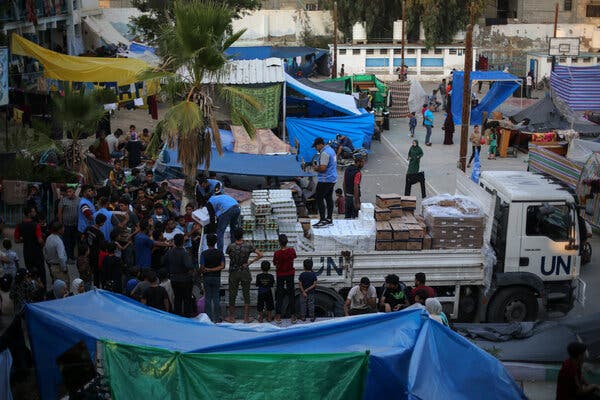The panel leading a review of the UN agency for Palestinian refugees (UNRWA) says Israel has yet to provide evidence to back up its claims that some UNRWA staff were involved in the October Hamas attack on Israel, The Guardian reports.
The UN Relief and Works Agency (UNRWA) remains “indispensable and indispensable to the human and economic development of the Palestinians,” says the 54-page report, which was led by French diplomat Catherine Colonna.
The panel was set up after Israel made accusations in January that some UNRWA staff may have been involved in the 7 October 2023 Hamas attacks. In the weeks that followed, many donor states suspended or withheld some $450 million in funding. Many have resumed funding, including Sweden, Canada, Japan, the EU and France, while others, including the US and UK, have not.
Last month, Congress passed a bill signed by President Joe Biden that blocks US funding until March 2025.
UN Secretary-General António Guterres recently said the freeze on the main aid agency in Gaza comes as Israel’s months-long military operations have turned the territory into a “humanitarian hell” with 2.3 million people in desperate need of food, water, shelter and medicine.
Colonna’s panel has been tasked with assessing whether UNRWA is doing “everything in its power to ensure neutrality”, while Guterres has stepped up a second investigation to look into Israel’s allegations.
Despite having a system in place to enforce the humanitarian principle of neutrality, the review found that “problems related to neutrality persist,” including the distribution of biased political posts on social media by staff and the use of a small number of textbooks with “problematic content” in some UNRWA schools.
But the report said that “Israel has yet to provide corroborating evidence” for its claim that UNRWA employs more than 400 “terrorists.”
Israel responded by saying that “the Colonna’s report ignores the seriousness of the problem and offers cosmetic solutions that fail to deal with the sheer scale of Hamas infiltration into UNRWA.”
The review found that most breaches of neutrality involve social media posts, often following incidents of violence against colleagues or relatives.
UNRWA began operations in 1950 and provides services to nearly 6 million people in Jordan, Lebanon, Syria, the Gaza Strip and the West Bank, including East Jerusalem.
